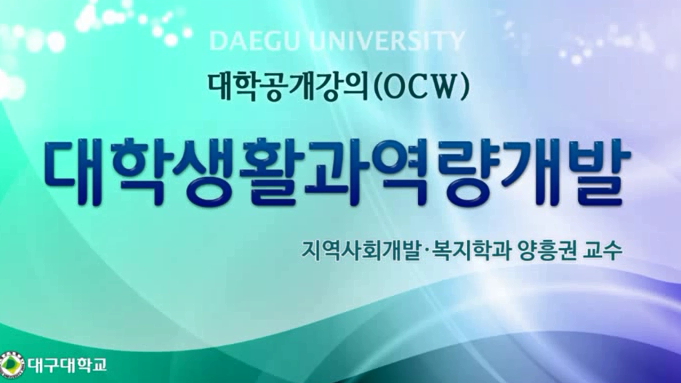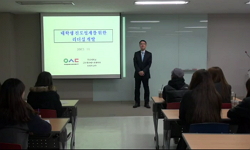The present study aims to observe how achievement goal orientation affects occupational engagement in university students and verify how the aforementioned variables influence career adaptability and the moderating effect of social networks. The follo...
http://chineseinput.net/에서 pinyin(병음)방식으로 중국어를 변환할 수 있습니다.
변환된 중국어를 복사하여 사용하시면 됩니다.
- 中文 을 입력하시려면 zhongwen을 입력하시고 space를누르시면됩니다.
- 北京 을 입력하시려면 beijing을 입력하시고 space를 누르시면 됩니다.
https://www.riss.kr/link?id=T15781857
- 저자
-
발행사항
서울 : 중앙대학교 대학원, 2021
-
학위논문사항
학위논문(석사) -- 중앙대학교 대학원 , 교육학과 평생교육전공 , 2021. 2
-
발행연도
2021
-
작성언어
한국어
- 주제어
-
발행국(도시)
서울
-
기타서명
(The) effect of achievement goal orientation on the occupational engagement : the mediating effect of career adaptability and the moderating effect of social network type
-
형태사항
v, 154 p. : 삽화, 도표 ; 26 cm
-
일반주기명
중앙대학교 논문은 저작권에 의해 보호받습니다
지도교수: 홍아정
참고문헌수록 -
UCI식별코드
I804:11052-000000234203
- DOI식별코드
- 소장기관
-
0
상세조회 -
0
다운로드
부가정보
다국어 초록 (Multilingual Abstract)
The present study aims to observe how achievement goal orientation affects occupational engagement in university students and verify how the aforementioned variables influence career adaptability and the moderating effect of social networks. The following questions delineate the scope of the investigation: By what mechanism does achievement goal orientation affect the occupational engagement behavior of undergraduate students? Is there a mediated effect between achievement goal orientation and occupational engagement behavior in undergraduate students? Does this relation change based on the type of social network? Does the moderating effect appear differently depending on the type of social network in the relationship between achievement goal orientation and career adaptability?
In order to observe the resulting differences, if any, correlate to the independent variables of this study, the three sub-factors of achievement goal orientation were classified - occupational engagement behavior as the dependent variable, career adaptability as the mediator variable, and two social network types as the moderator variables. An online survey for university students was created for this research. Among the responses, 353 survey results that were deemed valid were analyzed using SPSS 26.0 and AMOS 26.0. Features such as descriptive statistical analysis, measurement model evaluation, and structural equation modeling methods were utilized to analyze the survey data.
The study found the following findings: Learning goal orientation and avoid goal orientation were shown to have a static effect on occupational engagement behavior, whereas prove goal orientation did not directly affect occupational engagement behavior. Career adaptability had partial mediation between learning goal orientation and occupational engagement behavior and was also proven to have partial mediation in the ways of avoid goal orientation to occupational engagement behavior. Career adaptability was proved to have a thorough mediation in the effect of prove goal orientation in occupational engagement behavior. It was shown that social network type controls the indirect effects of career adaptability between learning goal orientation and occupational engagement behavior. Though the effect of social network types’ control in the route from prove goal orientation to occupational engagement behavior using career adaptability was not proved to be present. The indirect effect of career adaptability, when avoid goal orientation influences occupational engagement behavior, was only active in offline network.
Based on these results, the following implications were derived. This research verified the validity of the theoretical model in Korean perception by verifying sequential adapted models using Career Adapt-Abilities Scale from Savickas & Porfeli(2002). Its theoretical significance is that it emphasized the importance of career adaptability by proving the suppressor effect of the mediator variable of avoid goal orientation, which was subject to conflicting reports in the past. Furthermore, this paper offers an explanation for how career development in the sense of learning adapting cognitive variable in careers that used to be applied when explaining students’ learning and performance in academic situations. It has practical implications for proposing a course of intervention for effective career education by verifying the moderating effect of environmental variables to enhance career adaptability and increasing behavioral levels of students with varying achievement goals in circumstances involving career-related performance.
국문 초록 (Abstract)
이 연구는 진로발달 관점에서 대학생의 성취목표지향성이 진로관여행동에 미치는 영향을 파악하고, 두 변인 간 경로에서 진로적응성의 매개효과와 사회적 네트워크 유형의 조절효과를 실...
이 연구는 진로발달 관점에서 대학생의 성취목표지향성이 진로관여행동에 미치는 영향을 파악하고, 두 변인 간 경로에서 진로적응성의 매개효과와 사회적 네트워크 유형의 조절효과를 실증하는 데 목적이 있다. 연구 목적을 달성하기 위해 설정한 연구 문제는 다음과 같다. 첫째, 대학생의 성취목표지향성은 진로관여행동에 어떠한 영향을 미치는가, 둘째, 대학생의 성취목표지향성과 진로관여행동 간 영향 관계에서 진로적응성은 매개효과를 보이는가, 셋째, 대학생의 성취목표지향성과 진로적응성 간 관계에서 사회적 네트워크 유형에 따라 조절효과가 다르게 나타나는가로 설정하였다. 변인 특성에 따른 차이를 확인하기 위해 성취목표지향성의 세 가지 하위요인을 독립변인으로 선정하였으며, 종속변인으로 진로관여행동, 매개변인으로 진로적응성, 조절변인으로 사회적 네트워크 유형 두 가지를 선정하였다. 조사는 국내 4년제 대학생을 대상으로 온라인 설문을 실시하였으며, 불성실한 응답을 제외한 353부의 응답 자료를 통계분석에 사용하였다. 데이터 분석은 SPSS 26.0과 AMOS 26.0 프로그램을 활용하여 기술통계 분석, 측정모형 평가, 구조모형 검증 순으로 실시하였다.
연구를 통해 도출된 결과는 다음과 같다. 첫째, 학습목표지향성과 회피목표지향성은 진로관여행동에 정적 영향을 미치는 것으로 나타났으며, 증명목표지향성은 진로관여행동에 직접적 영향을 미치지 않는 것으로 나타났다. 둘째, 학습목표지향성과 진로관여행동 사이에서 진로적응성이 부분매개하는 것으로 나타났으며, 회피목표지향성이 진로관여행동으로 가는 경로에서도 진로적응성의 부분매개 효과가 유의함을 확인하였다. 증명목표지향성이 진로관여행동에 미치는 영향에서 진로적응성은 완전매개하는 것으로 검증되었다. 셋째, 학습목표지향성과 진로관여행동 간 진로적응성이 갖는 간접효과를 사회적 네트워크 유형이 조절하는 것으로 나타났다. 증명목표지향성이 진로적응성을 매개로 진로관여행동으로 가는 경로에서는 사회적 네트워크의 조절효과가 유의하지 않았다. 회피목표지향성이 진로관여행동에 미치는 영향에서 진로적응성의 간접효과는 오프라인 네트워크만 조절하는 것으로 나타났다.
연구 결과를 바탕으로 다음과 같은 시사점이 도출되었다. 이 연구에서는 Savickas와 Porfeli(2002)의 진로적응척도를 사용하여 순차적 적응모형을 검증함으로써 한국적 맥락에서 이론모형의 타당성을 확인하였다. 그동안 연구 결과가 혼재되었던 회피목표지향에 대해 매개변수의 억제효과를 증명하여, 진로적응성의 중요성을 강조하였다는 데 이론적 의의가 있다. 또한 학업 상황에서 학생들의 학습과 수행을 설명하던 인지-동기 변인을 진로 맥락에 적용하여 학습 관점에서 진로발달을 설명하였다. 진로와 관련된 수행 상황에서 서로 다른 성취목표를 가진 학생들의 진로적응성을 강화하고 행동 수준을 높이기 위한 환경 변인의 조절효과를 검증하여, 효과적 진로 교육을 위한 개입 방안을 제시하였다는 데 실천적 함의를 갖는다.
목차 (Table of Contents)
- Ⅰ. 서 론 1
- 1. 연구의 필요성 및 목적 1
- 2. 연구 문제 11
- 3. 용어의 정의 11
- 1) 성취목표지향성 11
- Ⅰ. 서 론 1
- 1. 연구의 필요성 및 목적 1
- 2. 연구 문제 11
- 3. 용어의 정의 11
- 1) 성취목표지향성 11
- 2) 진로적응성 12
- 3) 진로관여행동 12
- 4) 사회적 네트워크 유형 12
- Ⅱ. 이론적 배경 14
- 1. 구성주의 진로발달 이론 14
- 1) 진로적응성의 등장배경 14
- 2) 진로적응모형 15
- 2. 진로적응성 17
- 1) 진로적응성의 개념 17
- 2) 진로적응성의 구성요인 19
- 3) 진로적응성의 선행연구 22
- 3. 성취목표지향성 24
- 1) 성취목표지향성의 등장배경 24
- 2) 성취목표지향성의 개념 26
- 3) 성취목표지향성의 구성요인 28
- 4) 성취목표지향성의 선행연구 35
- 4. 진로관여행동 38
- 1) 진로관여행동의 등장배경 38
- 2) 진로관여행동의 개념 및 구성요인 40
- 3) 진로관여행동의 선행연구 43
- 5. 사회적 네트워크 46
- 1) 사회자본과 사회적 네트워크 46
- 2) 사회적 네트워크의 정의 47
- 3) 사회적 네트워크의 유형 49
- 4) 사회적 네트워크의 선행연구 55
- 6. 변인 간 관계 58
- 1) 진로적응성의 매개효과 58
- 2) 사회적 네트워크의 조절효과 61
- Ⅲ. 연구 방법 65
- 1. 연구모형 65
- 2. 연구대상 66
- 3. 측정도구 68
- 1) 성취목표지향성 68
- 2) 진로적응성 68
- 3) 진로관여행동 69
- 4) 사회적 네트워크 유형 69
- 4. 측정도구 신뢰도 및 타당도 검증 70
- 5. 분석방법 77
- Ⅳ. 연구 결과 79
- 1. 기술통계 분석 79
- 2. 연구 변인 간 상관관계 분석 80
- 3. 구조모형 검증 82
- 1) 주요 변인 간 영향관계 82
- 2) 진로적응성의 매개효과 85
- 3) 사회적 네트워크 유형의 조절효과 87
- 4) 사회적 네트워크의 조건부 간접효과 91
- Ⅴ. 결 론 96
- 1. 요약 96
- 2. 결과 및 논의 99
- 3. 이론적 및 실천적 시사점 105
- 4. 제언 109
- 참고문헌 111
- 부 록 145
- 국문초록 150
- Abstract 152












